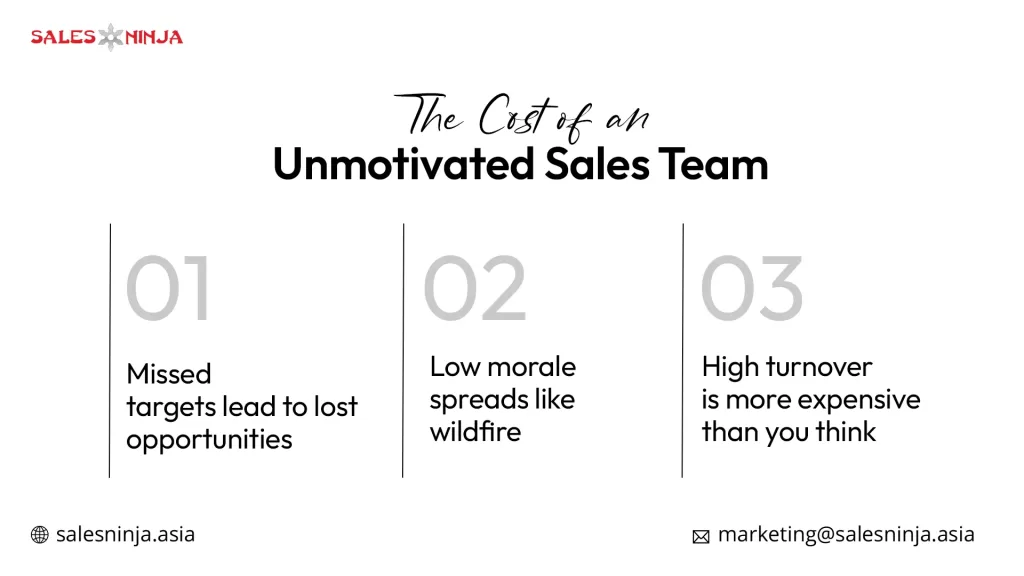A motivated sales team isn’t born—it’s built. No matter how skilled your salespeople are, even the best performers face burnout, slumps, or moments when the spark isn’t there. It’s normal. Selling is tough, and staying sharp in the game takes more than raw talent; it demands constant refinement and reinforcement of skills. Think about it: would you trust a pilot who hasn’t practiced landing in years? The same principle applies to sales. Your team might be experienced, but without ongoing development, they risk losing the edge that sets them apart. And here’s where sales teams training steps in—not just as a way to teach techniques, but as a powerful motivator to reignite enthusiasm, boost confidence, and elevate performance.
In this writing, we’ll dive deep into how the right training can sharpen your team’s skills and keep them driven and ready to tackle challenges head-on. After all, motivated salespeople don’t just close deals—they transform businesses. Ready to explore how? Let’s get started.
The Cost of an Unmotivated Sales Team
When a sales team loses motivation, the cracks in performance don’t take long to show. It’s like trying to win a race with a car that hasn’t been tuned—no matter how much potential it had at the start, it can’t perform at its best without proper maintenance. An unmotivated team can cost more than missed numbers in B2B sales, where competition is fierce and targets are unforgiving. Let’s break down what’s really at stake and why the right sales team training can be the fix your team needs.

-
Missed targets lead to lost opportunities
Unmotivated salespeople operate on autopilot, doing the bare minimum to get by. They may overlook new opportunities, fail to follow up on leads, or struggle to close deals effectively. Over time, this can snowball into missed revenue targets, strained client relationships, and a reputation that’s hard to rebuild. The right training can remind your team why those opportunities matter and how to seize them confidently.
-
Low morale spreads like wildfire
When one salesperson feels demotivated, it spreads to the rest of the team. A lack of enthusiasm can create a negative work environment, making fostering collaboration or celebrating wins harder. Morale isn’t just about keeping spirits high—and sustaining productivity and a positive team culture.
-
High turnover is more expensive than you think
Replacing a sales team member costs time, money, and momentum. Recruiting, onboarding, and ramping up a new salesperson can take months, not to mention the lost sales. When teams feel unsupported or stagnant, they’re more likely to seek greener pastures.
Why is training the key to motivation for sales teams?
Motivation in sales isn’t something you can force—it needs to be nurtured. While incentives and pep talks have their place, lasting motivation comes from something deeper: confidence in one’s abilities. This is why sales teams training is the hidden ingredient that keeps your team performing at their best. When done right, training doesn’t just teach skills; it empowers salespeople to face real-world challenges with confidence and clarity.
Let’s break down how this works.

Training equips teams to handle real-world challenges effectively
In the high-pressure world of B2B sales, unpredictable situations are the norm. From handling tough objections to navigating complex buying processes, salespeople need more than surface-level knowledge. A robust training program gives them tools and strategies they can use immediately, making them better prepared for these challenges.
When your team knows how to tackle these situations, they feel empowered rather than overwhelmed. That confidence translates into motivation—they’re not just winging it but owning it.
Learning new skills gives a psychological boost
There’s something undeniably motivating about acquiring a new skill. It’s not just about the practical benefits—learning triggers a psychological sense of accomplishment. For sales teams, staying ahead of the curve with the latest sales techniques or industry trends can reignite their drive to excel.
Training sessions can also make your team feel valued. Investing in their growth sends a clear message: You matter to this company. That simple recognition can go a long way in boosting morale and motivation.
Platforms like LinkedIn Learning offer courses tailored for sales professionals, covering negotiation tactics and emotional intelligence in sales.
Training Sales Teams: Motivating Through Measurable Progress
Training isn’t just about learning—it’s also about achieving. When your team sees clear results, it fuels their motivation to keep improving. Measuring progress ensures that training programs deliver real value for the team and the company. How?
-
Achievements and milestones keep motivation alive
Breaking down training into smaller, tangible goals helps salespeople stay focused. For example, set a milestone for completing a negotiation module or hitting a role-play success rate. These measurable steps provide a sense of accomplishment along the way.

-
Celebrating small wins builds momentum and unity
Recognition goes a long way in keeping spirits high. Whether it’s a shoutout during a team meeting or a small reward for completing training, celebrating wins reinforces the value of learning. It also fosters team cohesion, as everyone works toward shared goals and celebrates successes.
-
CRM insights help track progress after training
Post-training evaluation is critical to ensure the lessons stick. CRM tools can provide valuable insights into team performance. Metrics like lead conversion rates, follow-up times, and deal sizes reveal how well the team applies what they’ve learned. Regularly reviewing these metrics helps identify ongoing gaps and areas for additional training, creating a continuous improvement cycle.
Why Ongoing Sales Teams Training is Non-Negotiable
The sales landscape is constantly shifting. Buyer behaviors, industry trends, and technological advancements evolve faster than ever. If your sales team isn’t keeping up, they risk falling behind. This is why ongoing sales teams training is no longer optional—it’s a must for staying competitive and motivated.
However, to help you clarify your thoughts, below is a thorough overview:
Sales trends evolve, and your team needs to keep pace
Customer expectations have changed dramatically. Buyers today demand personalized solutions, faster responses, and a deeper understanding of their challenges. If your sales team relies on outdated techniques, they’ll struggle to meet these demands.

Continuous training informs your team about the latest sales strategies, buyer psychology, and market dynamics. This knowledge boosts confidence and ensures they remain relevant in a competitive market.
Training is a motivator to keep teams competitive and engaged
Sales teams thrive on challenges and opportunities to grow. Regular training programs provide them with both. Learning new skills or mastering advanced tools instills a sense of progress and achievement, directly impacting their motivation.
For example, introducing training on advanced negotiation techniques or cutting-edge CRM systems can spark excitement and drive. The team feels empowered to take on new challenges, keeping their performance sharp and enthusiasm high.
Industries that rely on continuous training see consistent growth
The industries that excel at sales understand the value of consistent training. Tech companies, pharmaceutical firms, and financial services are examples of sectors that prioritize ongoing development for their sales teams.
For instance, through monthly training sessions tech companies often update their teams on the latest product features and market trends. This commitment to growth ensures that their sales teams are always prepared, motivated, and ready to close deals.
Motivation Starts with Empowerment
Motivating a sales team isn’t just about pep talks or one-time incentives. It starts with empowering them through continuous learning and growth. Ongoing sales teams training provides the tools, knowledge, and confidence they need to stay motivated and perform at their peak.
Don’t wait for performance to drop before taking action. Regular training isn’t just a nice-to-have—it’s the foundation for a motivated, competitive team that drives results.
Ready to Empower Your Sales Team?
At Sales Ninja, we specialize in equipping sales teams with the skills and strategies they need to excel. Whether adapting to new trends or reigniting motivation, our cutting-edge training programs are designed to bring out your team’s full potential.
Contact Sales Ninja today and take the first step toward transforming your sales team into a powerhouse of performance.






Leave A Comment